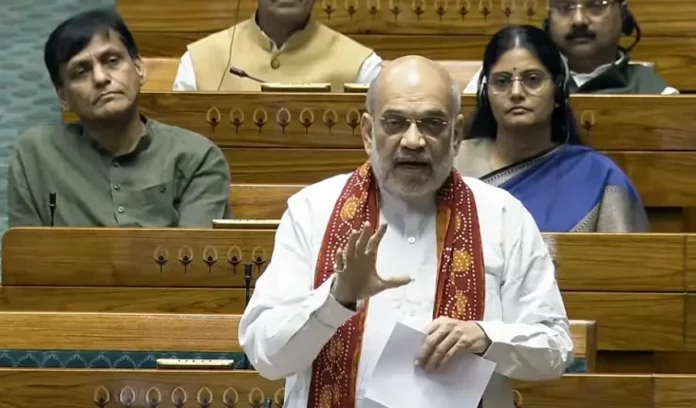New Delhi [India]: Union Home Minister Amit Shah on Wednesday dismissed opposition allegations that the government intends to interfere in the religious affairs of Muslims through the Waqf Amendment Bill, 2025. He clarified that the bill’s provisions are aimed solely at improving the management of Waqf properties.
Speaking in the Lok Sabha during the debate on the bill, Amit Shah assured that the amendments would not be applied retrospectively and accused opposition members of misleading the Muslim community by instilling unnecessary fear.
“I stand in support of the Bill introduced by my ministerial colleague. I have been carefully hearing the discussion going on since 12 noon…I feel that there are several misconceptions among several Members, either genuinely or politically. Also, through this House, attempts are being made to spread those misconceptions across the country,” Shah said.
He further clarified that the bill does not include any provision for appointing non-Muslims to roles involving religious practices.
“Waqf Act and Board came into effect in 1995. All the arguments about the inclusion of non-Muslims are about interference in the Waqf. First of all, no non-Muslim would come into the Waqf. Understand this clearly…There is no such provision to include any non-Muslim among those who manage the religious institutions; we do not want to do this…This is a huge misconception that this Act will interfere with the religious conduct of Muslims and interfere with the property donated by them. This misconception is being spread to instil fear among minorities for their vote bank,” he stated.
Addressing concerns about the inclusion of non-Muslim members, Shah explained that they would only be part of the Council and Waqf Board and would not be involved in religious activities.
“Where will non-Muslim members be included? In Council and Waqf Board. What would they do? They won’t run any religious activity. They would only look after the administration of property donated by someone under Waqf Law, whether it is being done as per law, whether the property is being used for the intent with which it was donated,” he added.
He emphasized that individuals could only donate property they legally own and not government or private land belonging to others. The amendments, he explained, pertain only to administrative aspects of the Waqf Act of 1995, particularly those governing the Council and Board.
Minority Affairs Minister Kiren Rijiju, while moving the bill for passage, reiterated that it would not have retrospective effect and assured that the Centre is not seeking additional powers.
“When our country has the largest Waqf property in the world, why hasn’t it been used for the education, medical treatment, skill development, and income generation of poor Muslims? Why has no progress been made in this regard so far?” Rijiju questioned.
Along with the Waqf (Amendment) Bill, 2025, Rijiju also introduced the Mussalman Wakf (Repeal) Bill, 2024, for consideration in the Lok Sabha.
The bill, first presented in August last year, was examined by a Joint Parliamentary Committee led by BJP MP Jagdambika Pal. It seeks to amend the 1995 Waqf Act to enhance the administration and management of Waqf properties in India. The proposed changes aim to rectify previous shortcomings, improve Waqf board efficiency, streamline the registration process, and integrate technology for better management of Waqf records.


